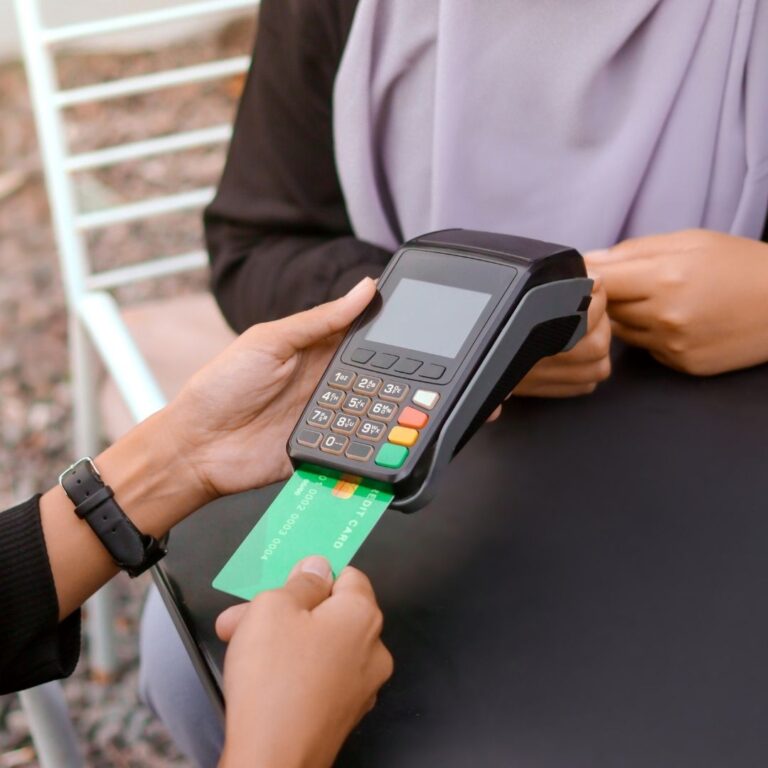Financing, Sales, and Transactions
Financing vs Trading
The table as follows illustrates the differences between finance and trading.
| Financing | Trading |
| Credit (deferred payment) | Cash transactions and on-spot transactions |
| Interest or profit is disclosed | Disclosure of profit and interest is not common |
| Risk management: credit default risk, concentration risk | Risk management: Operational risk, market risk, liquidity risk |
Trading was commonly used during the prophet’s time, and financing was not the norm. The main key difference between the two is that financing almost always involves an interest or profit, whereas, trading involves on-spot transactions. In addition, credit default risk is always a risk that exists in financing and is not witnessed in trading.
Conventional and Islamic Financing
In conventional financing, its main product is between two parties where one party will lend with an interest charged. Islamic financing differs from the conventional ways, and adapts trade in contracts, and prioritizes risk management. From an Islamic perspective, lending should be non-commercialised and is a charitable contract. Additionally, interest should not be there and instead, a sale on credit with a markup price is practiced. Payment arrangements, risk management, and inflation management are also adapted in Islamic finance.
In Islamic finance, the contracts are profit-based in which the profits are disclosed and include three parties; the buyer, financier, and supplier. The contracts can be based on one of the following:
- Sale and purchase. For instance, the Murabahah contract is a sale and purchase agreement. In murabahah, there are three parties, the supplier, the bank, and the customer. Given a situation where the customer intends to purchase a property from a supplier but needs help with financing, and thus seeks the bank for help. Rather than the bank lending a loan with interest like in conventional finance, the bank would first purchase the property on spot payment from the supplier. Afterwards, the bank would sell the property to the customer with an agreed markup price (principal amount plus profit) on a deferred basis. The profit earned by the bank would be a profit from a sale, and therefore is permissible in Islam.
- Lease contracts. For instance, Ijarah is a contract in which the owner of the asset lends the asset on a lease to a lessee. In a lease contract, the lessee pays the lessor the rental payment with an agreed period of time.
- Service-based contract. This relates to contracts that have an agent/agency (wakalah) handling a transaction on behalf of the parties.
- Equity acquisition, which relates to business, partnerships, and investments.
Can Trade Contracts be Used for Financing?
Islam permits trade and with the modern world we currently live in, financing has been a necessity. In Islamic finance today, trade contracts are merged and now used for financing and this differentiates it from conventional finance. The question then arises as to how Islamic finance moved from a trade contract to a financing transaction.
From a fiqh perspective, its key differences from financing transactions are:
1. Deferred payments
Deferred payments are allowed by all scholars according to a hadith in Sahih al-Bukhari that states, “Sayyida Aishah relates that the Prophet (ﷺ) purchased food grains from a Jewish individual on a deferred payment and placed his armor as collateral.” (Sahih al-Bukhari)
2. Pricing
Can a financing contract be priced with a markup that is different from a trade-on-spot transaction? The Four schools of Fiqh, scholars of hadith, and all mainstream opinions state that it is acceptable.
Ibn Abbas (Radi-Allahu Anhuma) states, “There is no issue in a seller selling something on the spot for one amount and on a deferred basis for a different amount. However, they should execute the transaction with an agreed price.” (Musannaf ibn Abi Shayba)
It is also stated by Zuhri, Tawus, and ibn al-Musayyib, “There is no problem with selling a cloth for 10 payable after one month, or for twenty payable after two months.” (Musannaf Abdur Razaq)
3. Having an additional party (3 parties in total) is permissible
It is narrated that Sayyiduna Ali purchased a garment for five dirhams and said “Whoever gives me one dirham profit on this, I will sell it to them.” (Bayhaqi)
4. The customer keeps the collateral
In trade, there is no collateral because payment is made on the spot. In Islamic financing, almost all agreements require collateral for security and protection against risks such as default risk. Scholars agree that the item can be given back to the customer.
Transacting the correct way
Narrated Hakim bin Hizam: The Prophet (ﷺ) said,
حَدَّثَنَا بَدَلُ بْنُ الْمُحَبَّرِ، حَدَّثَنَا شُعْبَةُ، عَنْ قَتَادَةَ، قَالَ سَمِعْتُ أَبَا الْخَلِيلِ، يُحَدِّثُ عَنْ عَبْدِ اللَّهِ بْنِ الْحَارِثِ، عَنْ حَكِيمِ بْنِ حِزَامٍ ـ رضى الله عنه ـ عَنِ النَّبِيِّ صلى الله عليه وسلم قَالَ “ الْبَيِّعَانِ بِالْخِيَارِ مَا لَمْ يَتَفَرَّقَا ـ أَوْ قَالَ حَتَّى يَتَفَرَّقَا ـ فَإِنْ صَدَقَا وَبَيَّنَا بُورِكَ لَهُمَا فِي بَيْعِهِمَا، وَإِنْ كَتَمَا وَكَذَبَا مُحِقَتْ بَرَكَةُ بَيْعِهِمَا ”.
“The buyer and the seller have the option to cancel or to confirm the deal, as long as they have not parted or till they part, and if they spoke the truth and told each other the defects of the things, then blessings would be in their deal, and if they hid something and told lies, the blessing of the deal would be lost.” (Sahih al-Bukhari 2082)
This hadith states that whenever there are two parties in a transaction, they are not compelled or pressured to enter the transaction and they both have the option to cancel. Before, after, and during the transaction, there is always equalness in the agreement (level footing of both parties). The behaviour of the parties impacts the ultimate outcome for the sale to be beneficial, and to meet the objectives of the transaction.
What is a transaction in Shariah?
It is simply an exchange of value on both sides. Islam looks at it as a value exchange because both parties give and receive something valuable to the other with mutual happiness and consent. In addition, the value owned by a person is sacred whereby his effort and labour have gone into acquiring it. Anything that makes the value transfer uncertain will lead to problems, due to its violation of the sanctity of the person and his wealth, as well as loses the essence of an exchange.
The elements in a transaction
The following are the elements that are required in a transaction:
- The counterparties in the contract
- Offer and acceptance
- Sale item
- Payment
- Terms and conditions
- Context of the transaction
In the context of the counterparties of the contract, this refers to a person who must be sane and must have Tamiyz (discerning capacity) which refers to the age one can distinguish what they are doing to have an understanding transaction. Some jurists say by the age of 7 whereas others have not stipulated. However, Mufti Taqi Uthmani states it should be left flexible as different people can start comprehending at different ages. In addition, a child can be a party to a transaction but needs permission from guardians according to Hanafi, Maliki, and Hanbali schools of thought.
Additional Notes
According to a discussion in the lesson between Mufti Faraz Adam and the public, several steps can be taken to ensure halal earnings which are:
- Knowledge, accessibility, and research of Islamic finance
- Understanding Riba and assets
- Honesty and intention
- Tawakkul, dua and taqwa.
- Due diligence of the job description
- Not affecting or harming others
- Mindfulness and accountability
Written by Nafisah Yusra Abdul Rahim.
Notes taken from Messenger Money Morals – Lesson 5: Financing, Sales, and Transactions.
Lesson 4: Approaches to Islamic Finance and The 14 Qur’anic Principles








